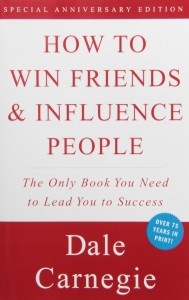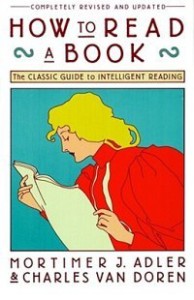Every baptized Christian is called to participate in evangelization.
As such we must prepare ourselves to go out into the world and share the Good News that Christ is Lord. To be an effective evangelist we must first pray. Nothing is more important than our relationship with God, and we will be ineffective in spreading the Good News if we do not regularly converse with God.
[See also: Brave Monks Secretly Save Ancient Books from ISIS Forces]
[See also: Burned by the Hands of Souls in Purgatory: A Museum’s Rare Collection]
That being said, we should also strive to grow in our humanity. We are incarnate beings both body and soul, and the perfection of our humanity gives glory to God, our Creator. By perfecting our humanity we will grow in those essential qualities that develop into virtue thus becoming more effective evangelists.
The Church has an abundance of resources to help you to become a better evangelist, but there are also a lot of great resources offered by the secular culture that can help you to preach the Gospel. By secular I mean not religious in theme. And just because something is not religious in nature does not mean that it can’t help us to become a better person. As St. Ignatius reminds us, we must find God in all things.
The secular world might not be steeped in religion but there are plenty of conscious and wise people in the secular world that have made incredible insights into the nature of humanity. Think for instance of Aristotle. He was a secular pagan, but his observations of human nature and the world are the founding philosophical principles of St. Thomas Aquinas’ thought.
Therefore, do not be afraid of reading a secular book. Each of the books I suggest will help you to obtain qualities that can lead you to become a better person and evangelist. The basic principles these books have to offer can assist you as you strive to grow in virtue and holiness.
1) How to Win Friends and Influence People by Dale Carnegie

Don’t let the lame title of this book deter you from reading it. This timeless classic should be a staple upon the bookshelf of every Christian and evangelist.
If you want to improve your conversation skills and present yourself in a compelling way, read this book! Carnegie will teach you how to succeed in every aspect of your life by teaching you how to be kind, friendly, and generous. These might seem like qualities that are not worth reflecting on. But Carnegie gives you a systematic way of incorporating them into your life so that you can become successful.
Although the book’s target audience is the business world the principles that Carnegie teaches are true of evangelization as well. Being a better conversationalist and kinder person are all great qualities in an evangelist, and Carnegie’s book will help you to cultivate these skills and more.
2) How to Read a Book: The Classic Guide to Intelligent Reading by Mortimer J. Adler and Charles Van Doren

I recommend this book to all of my high school students, who typically roll their eyes when they hear the title.
Like my students, you’re probably thinking, “Well, I already know how to read. So why would I waste my time with this book?” Good question.
If you read this book you will learn that there is a difference between reading and analyzing a text. Analyzing a text enables you to retain, understand, and synthesize information more quickly and accurately. This is especially important in evangelization.
If you want to learn more about God and His Church and want to spread the Good News of the Gospel more effectively you’ll want to continue your religious education. How to Read a Book will teach you how to get the most information from any text you read whether it’s St. Augustine’s Confessions or St. Thomas’ Summa Theologiae. This classic guide is an essential for anyone who wants to get more out of their reading.
3) Essentialism: The Disciplined Pursuit of Less by Greg McKeown

Do you find yourself burdened with too many tasks? Do you struggle to find time for prayer? Greg McKeown’s Essentialism holds the answer to your problems.
In this book you will find the key to prioritizing your life. McKeown suggests that before we do any task we ask ourselves, ‘Is this essential?’ Tasks are considered essential if they score higher than 8 on a scale from 1 to 10. Anything that scores an 8 or lower is considered nonessential.
This simple formula makes discerning the importance of everyday tasks easy. Prayer is always essential. Social media is not. By following McKeown’s simple formula, you will begin to declutter your life and focus your energy on what is most important. For the Christian evangelist, this means focusing our life and will on God. Distraction and opportunity will always present themselves, but we must be willing to say no to those things that lead us away from God’s mission for us.
When partaking in God’s work we cannot have a divided heart. Jesus never strayed from doing His Father’s will and we are called to follow His example. Essentialism will help you to focus on your priorities and thus become more fruitful in your ministry.
All of these books provide different skills to help you to become a better evangelist. By following the principles in these books you will improve your ability to converse, read, and prioritize, all of which improve your ability to witness to the Gospel. I hope you will prayerfully consider reading these books as a means of improving your humanity and evangelization techniques. They have all played crucial roles in my own formation and I know that they will help you too.
Is there a secular book that you think should be on this list? Let me know in the comments!
Originally posted on The Campion
[See also: 5 Extraordinary Eucharistic Miracles that Left Physical Evidence (With Pictures!)]
[See also: 18 Signs You Might Have A LOT of Kids]


